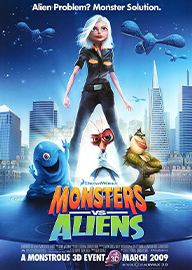Compliance
- 6.4
- Thriller
- 2012
- 1h 30m
- 14+
an intense psychological thriller inspired by true events, exploring themes of authority, manipulation, and morality. Directed by Craig Zobel, the film stars Ann Dowd as a fast-food restaurant manager who becomes the target of a disturbing phone scam, Dreama Walker as a young employee caught in a web of coercion, and Pat Healy as the manipulative caller. This gripping drama challenges viewers with its unsettling portrayal of obedience and human vulnerability.













Comments
0Reviews
0Summery
1Please sign in to comment.
Please sign in to review.
The 2012 psychological drama Compliance, directed by Craig Zobel, is a chilling and thought-provoking exploration of authority, manipulation, and human behavior. Inspired by true events, the film tells the unsettling story of how ordinary people can be coerced into performing extraordinary and morally questionable acts when placed under the influence of perceived authority figures. With its tense narrative and powerful performances, Compliance is a stark reminder of the vulnerabilities in human psychology and the dangers of blind obedience.
Set in a fast-food restaurant in Ohio, the story begins on what seems like a typical busy day for the staff. Sandra (Ann Dowd), the well-meaning but somewhat insecure manager, receives a phone call from someone claiming to be a police officer named Officer Daniels (Pat Healy). The caller informs her that one of her employees, Becky (Dreama Walker), has been accused of stealing money from a customer. Under the guise of conducting an investigation, Officer Daniels instructs Sandra to detain Becky and search her belongings, setting in motion a series of increasingly invasive and degrading actions.
What makes Compliance so unsettling is its portrayal of how easily individuals can be manipulated when authority is asserted. Sandra, played with incredible nuance by Ann Dowd, embodies the average person trying to do the right thing under stressful circumstances. Her deference to authority and desire to maintain order at work lead her to comply with the caller's escalating demands, even when they begin to defy common sense and moral boundaries. Dowd's performance is hauntingly real, capturing the internal conflict of a character torn between doubt and duty.
Dreama Walker delivers a harrowing portrayal of Becky, a young woman thrust into an unimaginable situation. Her vulnerability and gradual loss of autonomy highlight the psychological toll of being at the mercy of others. As the events unfold, Becky’s attempts to assert her innocence and dignity are systematically dismantled, leaving viewers grappling with a mix of empathy and horror. Pat Healy’s performance as the voice of Officer Daniels is equally compelling, exuding a calm yet sinister demeanor that underscores the terrifying plausibility of the scenario.
The film’s minimalistic setting—a small, claustrophobic fast-food restaurant—enhances the tension, creating an environment where the boundaries of power and morality are continually tested. The screenplay is tightly written, drawing viewers into the psychological dynamics of the characters while resisting the temptation to sensationalize the events. Instead, Zobel’s direction emphasizes the banality of the situation, making the unfolding horror all the more disturbing. One of the most striking aspects of Compliance is its exploration of the psychological mechanisms that enable such events to occur. The film draws on principles from Stanley Milgram's obedience experiments, illustrating how the presence of an authoritative figure—or even the illusion of one—can override personal judgment and ethical standards. It also examines the dynamics of power and control, questioning how societal structures and workplace hierarchies contribute to the erosion of individual autonomy.
While Compliance received critical acclaim for its performances and thought-provoking narrative, it also sparked controversy and debate due to its unsettling subject matter. Some viewers found the film’s depiction of the events too distressing, while others praised its unflinching approach to exploring uncomfortable truths about human nature. Regardless of where one falls on the spectrum, the film succeeds in provoking meaningful discussions about the dangers of unquestioning obedience and the responsibility of individuals to challenge authority.
Ultimately, Compliance is a sobering and deeply unsettling film that forces viewers to confront uncomfortable questions about their own susceptibility to manipulation. It serves as both a cautionary tale and a call to examine the ethical dimensions of our actions, even in the face of authority. With its gripping performances and incisive commentary on human behavior, Compliance is a cinematic experience that lingers long after the credits roll.